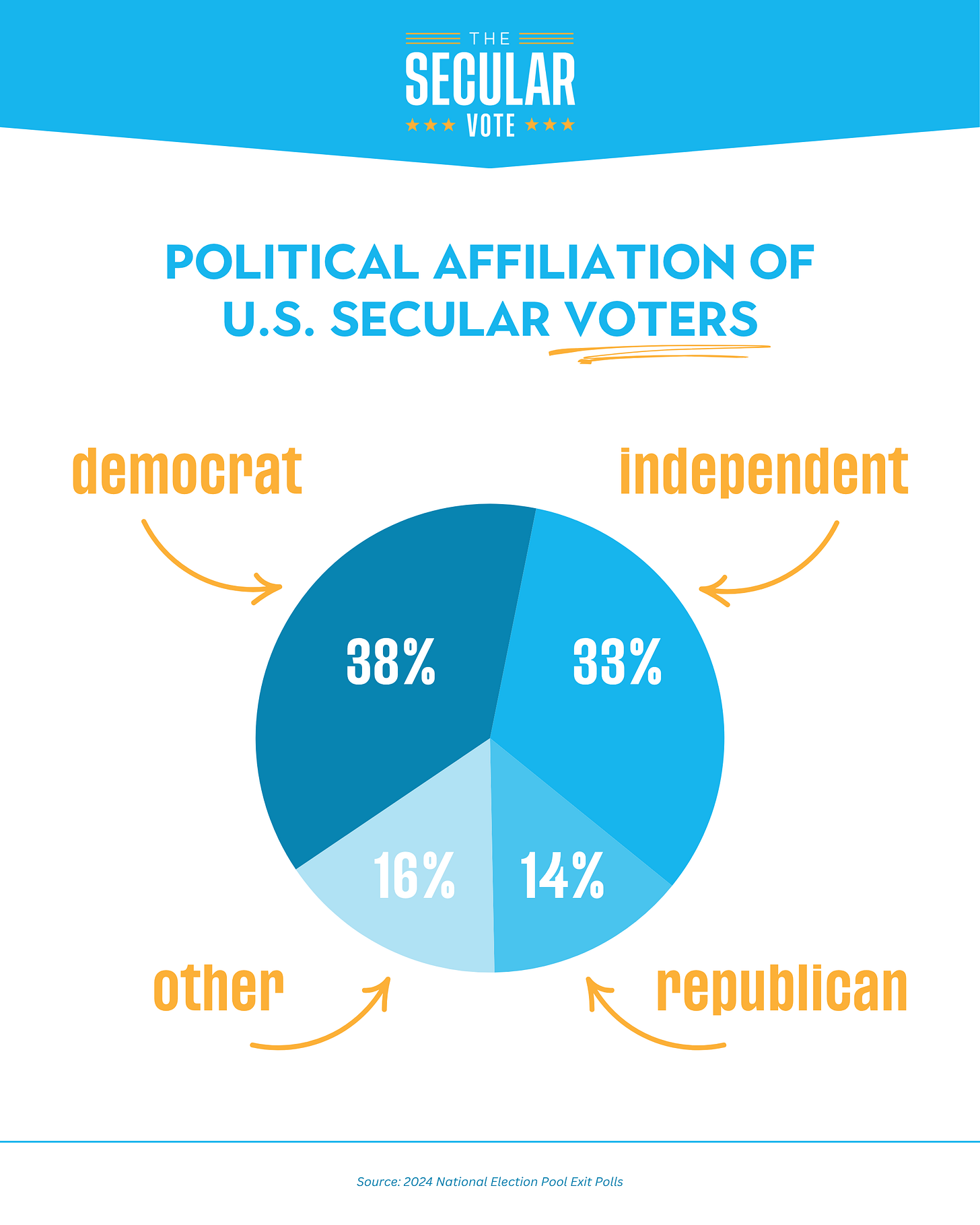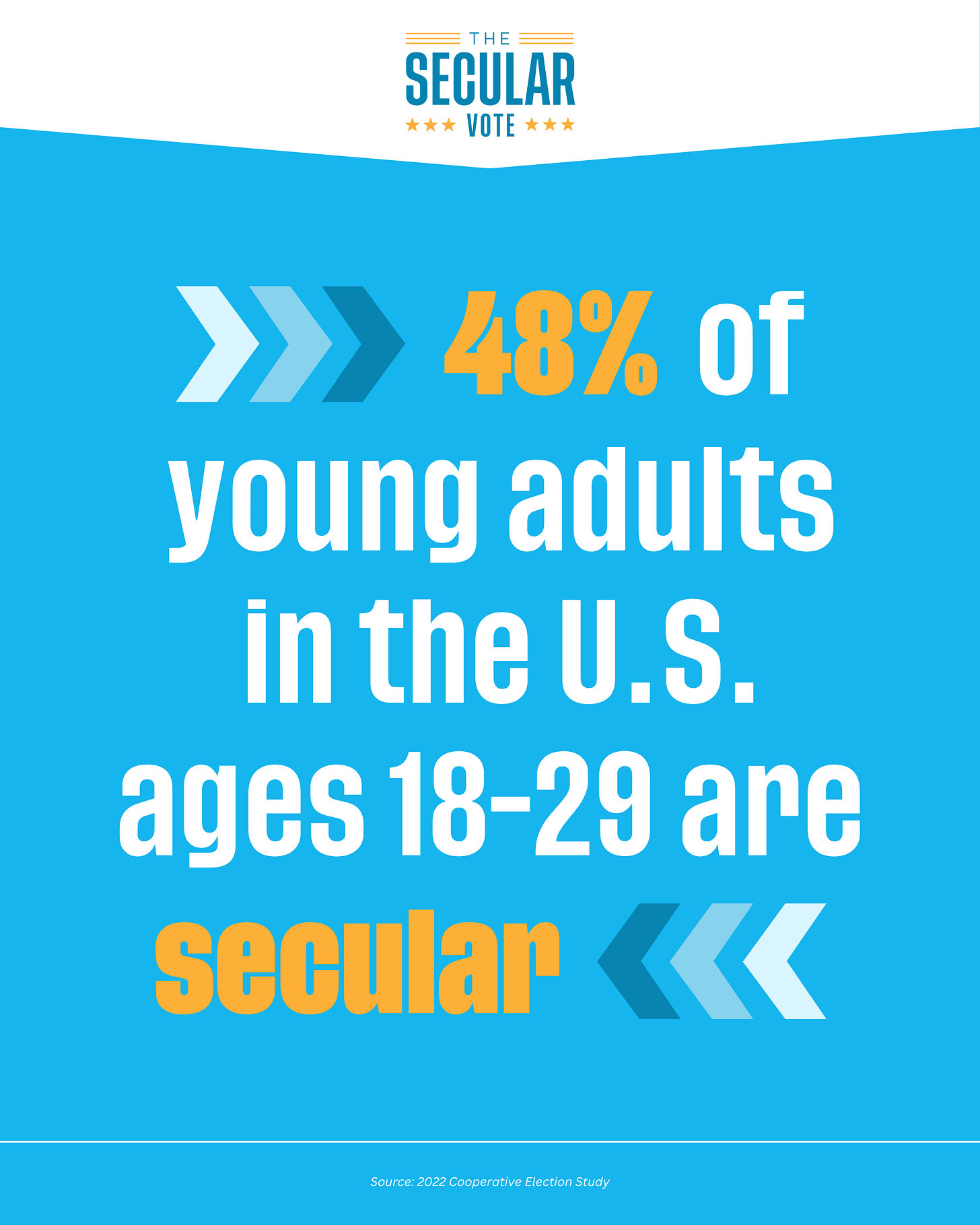The Secular Vote: Disrupting the Narratives that Define Us
A new initiative aims to put Secular Americans on the political map ahead of the 2026 midterms
The following is a guest post by Sarah M. Levin, the founder of Secular Strategies, and Dr. Juhem Navarro-Rivera, the founder of Socioanalítica Research. Tonight, they’ll be joining Dr. Ryan Cragun to discuss “Secular Identity, Gen Z, and the 2026 Midterms.” It’s a free virtual event and you can register for it here.
This week, we are excited to announce the launch of our initiative, “The Secular Vote,” a partnership our firms, Secular Strategies and Socioanalítica Research, have been developing over the past couple of years. This website is a one-stop shop for resources related to the secular population in the United States—insights from secular experts and secular politicians, and data trends and analysis of secular voters in the United States. The inspiration for The Secular Vote was our shared frustration observing the media, politicians, and research institutions talk about secular people without actually talking to us.
There has been a growing interest in studying and reporting on secular people in the United States in recent years, and with it a growing recognition of the impact of this demographic on our culture and politics. But the research being conducted, the analysis presented, and the resulting discourse in media and academia about our community continue to be influenced by religion.
Often, the experts sought out to comment on or analyze trends related to secular people are not from our community. Our goal is to disrupt that status quo. We advocate for more accurate and less biased reporting from journalists, and work to get secular voters on politicians’ radars as a constituency worth reaching out to—and one not to be taken for granted.
As co-founders, we are supported by a diverse group of experts from various fields within the social sciences, humanities, and history. These specialists focus on different aspects of secular populations, including demography, sociology, psychology, and other disciplines.
By harnessing this collective knowledge, we will provide valuable public resources about the secular community, with a focus on journalists and politicians. It is crucial that the voices from within the secular community, such as scholars who have long been part of it, are heard.
At The Secular Vote, we are posting original content about the latest research on secular electoral data, representation, and demographics, with a particular focus on age, race, and gender. We are sparking a conversation about the role of secular voters, especially as we approach the 2026 midterm elections. We will explore storylines regarding the influence of secular voters in upcoming elections from states like Virginia and New Jersey, which are currently in the midst of gubernatorial contests.
Our content will confront the persistent misconceptions about secular people in this country, who are often viewed through a primarily religious lens—particularly from a Christian perspective. While we know from public opinion surveys what supernatural phenomena nonreligious Americans do not believe in and what religious activities they do not engage in, we seek to understand what unifies secular individuals as a community.
We know that the vast majority of foundation funding available for nationally representative new research on secular people is awarded to individuals and institutions with a religious bent. Meanwhile, prominent secular social scientists and researchers struggle to obtain funding, which is why we’re humbly asking for support for secular-led research.
If you can’t spare a gift, you can make an impact just by sharing our resources and getting the word out. You can share insight and analysis from our blog, our fact sheets, or download our infographics to share on social media.
With your help, we can tell a more accurate and exciting story about our community—told from our own perspective and free of any religion’s agenda.





It is WAY past time that the secular / nonbeliever community got the recognition that WE HAVE EARNED with our growing numbers. This is good news. Let's hear more of it!
I'm sad that it is only 48%.